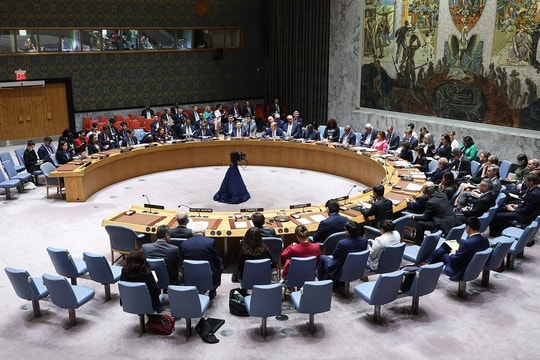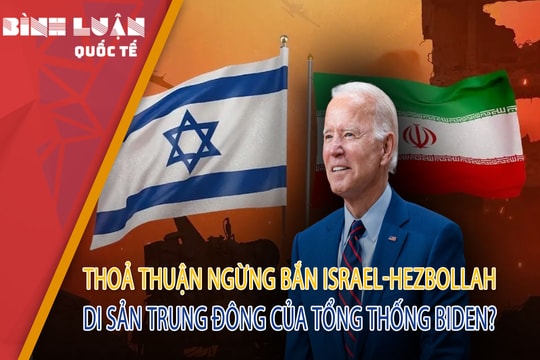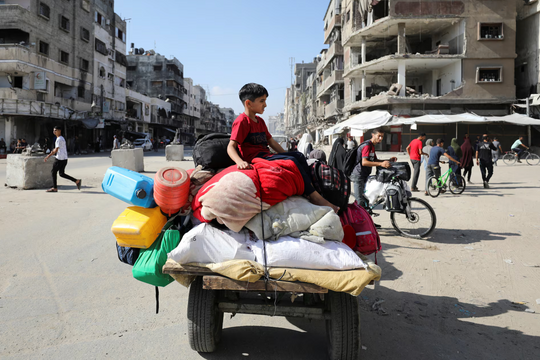The United Nations calls for an immediate, unconditional and permanent ceasefire in the Gaza Strip.
The United Nations General Assembly has adopted a resolution demanding an unconditional and permanent ceasefire in the Gaza Strip. The General Assembly also adopted another resolution supporting UNRWA.

Specifically, according to Reuters, the United Nations General Assembly overwhelmingly passed a resolution demanding an immediate, unconditional and permanent ceasefire in the devastated Gaza Strip.
According to local officials, the ongoing war in this land has lasted for more than a year and has so far killed more than 44,000 people.
158 members voted in favor of the resolution, 9 members voted against and 13 members abstained.
The text of the resolution calls for an "immediate, unconditional and permanent ceasefire" and the "immediate and unconditional release of all hostages" - similar wording to the text that Washington vetoed at the Security Council last month.
The General Assembly also passed another resolution supporting the UN agency for Palestinian refugees (UNRWA), which Israel has vehemently opposed since the war broke out.
The resolution condemns a new law that will ban the agency's activities in Israel starting from the end of January. It demands that Israel respect UNRWA's mandate and "allow its activities to proceed without hindrance or restriction."
The resolution was passed with 159 votes in favor. The United States, Israel and seven other countries voted against, while 11 other countries abstained.
Representatives of United Nations member states delivered speeches before the vote, expressing support for the Palestinians.
Palestinian envoy to the United Nations Riyad Mansour described Gaza as "an open, painful wound on the human family".
"Gaza no longer exists. It has been destroyed," said Slovenia's UN envoy Samuel Zbogar. "History is the harshest criticism of inaction."
"The price of silence and failure in the face of the Palestinian tragedy is very high, and it will be even higher tomorrow," said Algeria's deputy ambassador to the United Nations, Nacim Gaouaoui.
The ceasefire resolution is seen as a largely symbolic move, as it was rejected by both the US and Israel, and also because UN General Assembly resolutions are not legally binding.
But the resolution’s political weight comes from its reflection of global sentiment on the 14-month war, which Israel launched after Hamas-led militants launched an attack on southern Israel on October 7, 2023, killing 1,200 people and taking about 250 hostages.
The US has insisted that the ceasefire must be conditional on the release of all hostages in Gaza, saying that otherwise Hamas would have no incentive to free those it is currently holding.
US Deputy Ambassador Robert Wood said it would be "shameful and wrong" to approve the content.
"The resolutions before the council today are absurd," Israel's UN envoy Danny Danon said before the vote. "Today's vote is not a vote for compassion. It is a vote for complicity."

.jpg)


.jpg)

